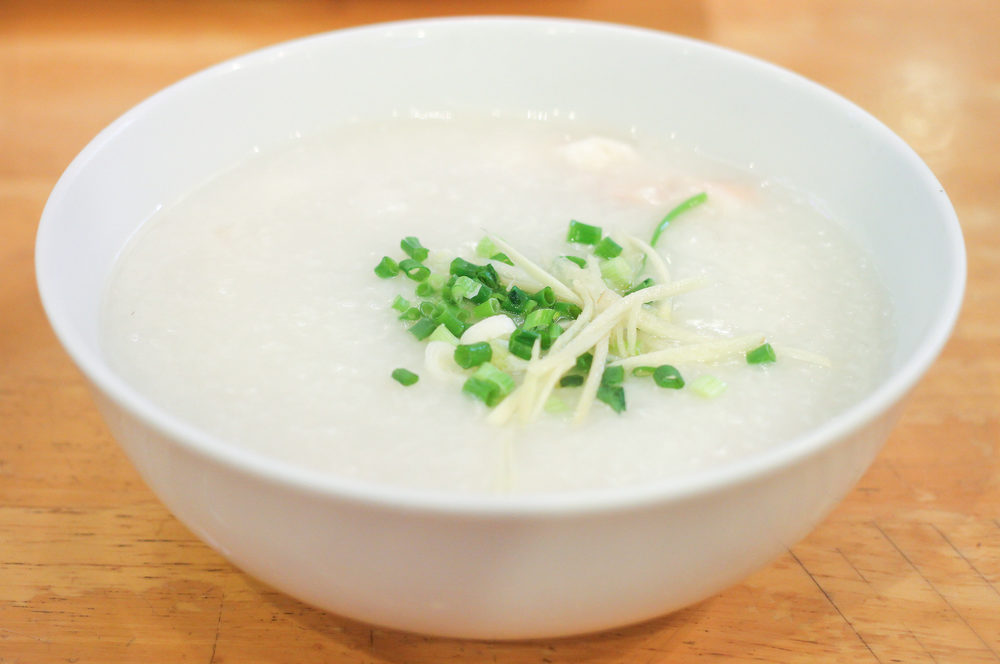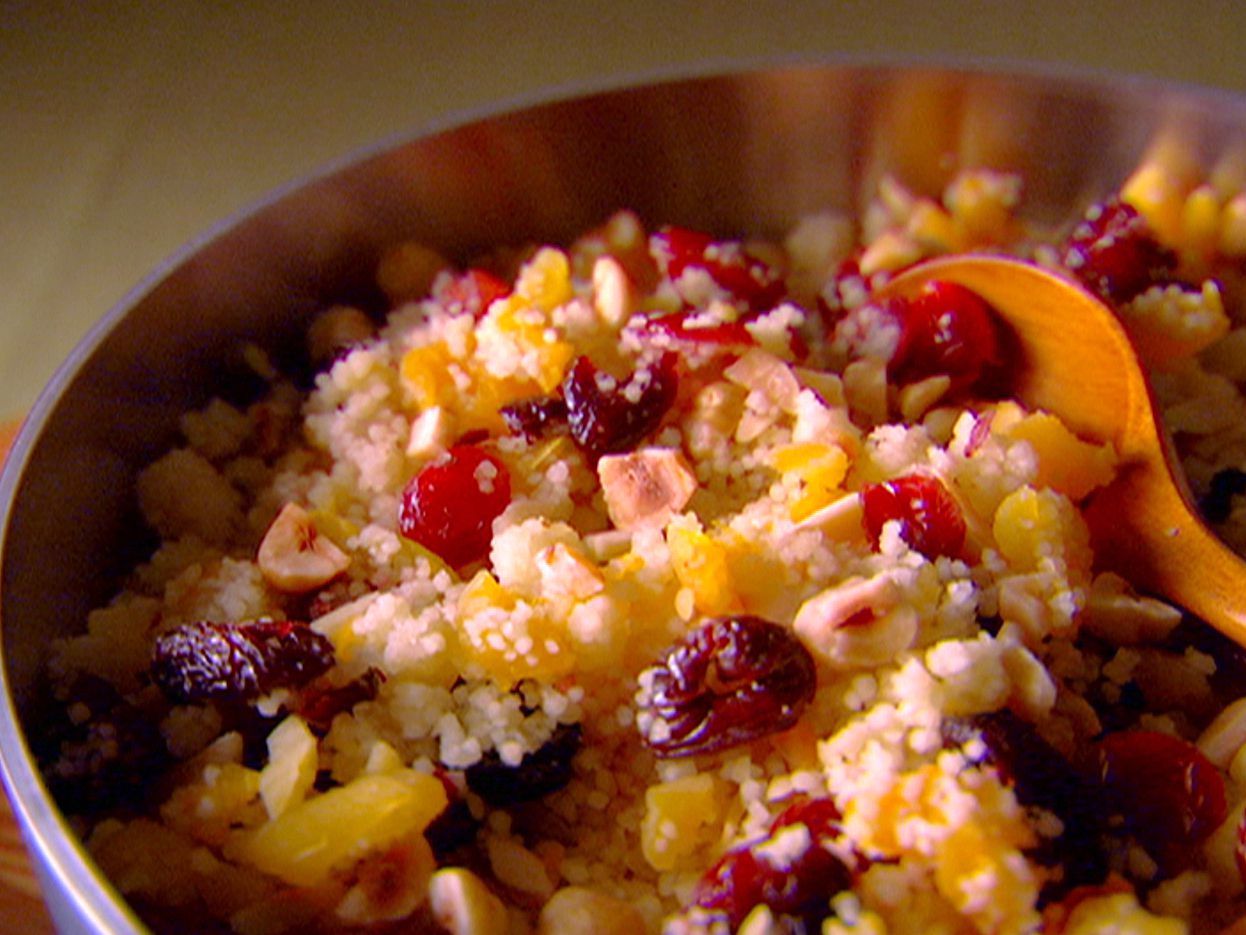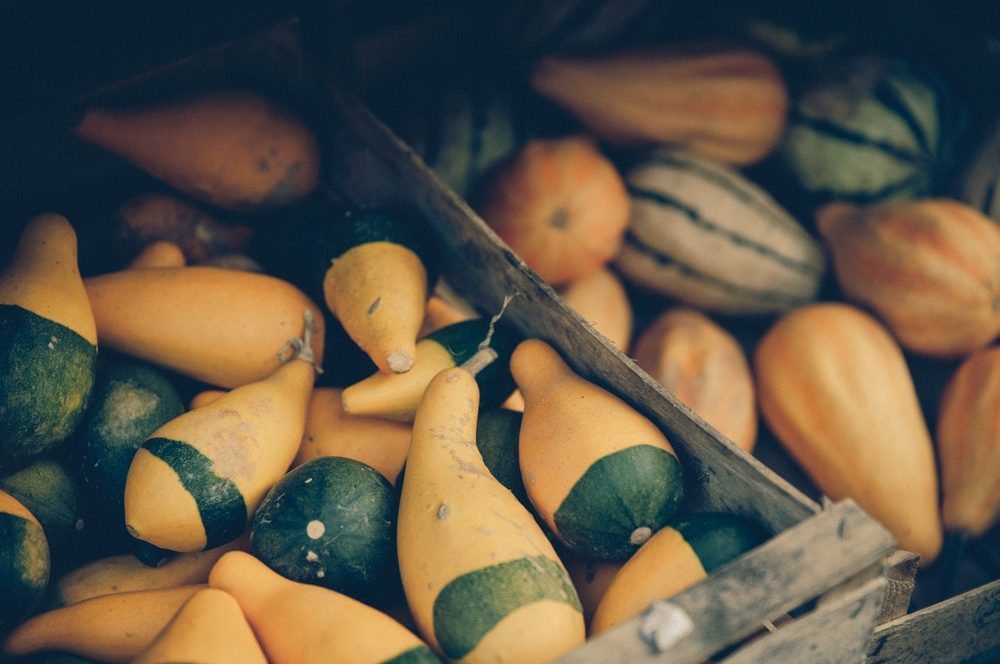 With summer here and berries in abundance, your little one can enjoy the sweet berries of the summer season with this simple recipe. Blueberries are one of the most suitable berries for babies as they don’t need sweetening. They are high in vitamin C and contain a natural enzyme that allows them to keep for a long time in the fridge.
With summer here and berries in abundance, your little one can enjoy the sweet berries of the summer season with this simple recipe. Blueberries are one of the most suitable berries for babies as they don’t need sweetening. They are high in vitamin C and contain a natural enzyme that allows them to keep for a long time in the fridge.
These savoury rice porridges contain many of the ingredients that baby needs to get through the day. Adding scant amounts of ginger, garlic and chicken to mild rice is a great way to introduce new flavours to your baby. The oil in this recipe is a good source of fat, which supplies energy and aids in the absorption of fat-soluble vitamins. The carbohydrates found in rice provide another source of energy and assists in the utilization of fats.
The nutty flavor and grainy texture of quinoa is delicious with the sweet juicy flesh of the squash, a combination popular in Peru, home territory to both of these ingredients. Quinoa was the staple grain food of the Incas of Peru – they call it the mother seed. Modern chemists identify it as being remarkably high in protein – particularly lysine, which is difficult to obtain in other vegetable source. It also supplies fiber, vitamins B and E, calcium, iron, magnesium and phosphorus. This makes a delicious Quinoa and Butternut Squash Baby Food Recipe.
Quinoa and Butternut Squash Baby Food Recipe
1/2cup quinoa
Spring water
1- pound piece butternut squash or other yellow-fleshed squash
- Put the quinoa grains in a small pan with enough spring water to cover by about 2 cm.
- Bring to a boil, reduce and simmer for 15-20 minutes until the dark skins pop open, showing the pale insides.
- Meanwhile peel the squash with a sharp knife, remove the fibers and seeds in the middle and cut up the flesh.
- Stir the cut-up squash into the quinoa, let it bubble up, reduce the heat to a gentle simmer, tightly cover, and cook for 20- 25 minutes, until the grains are tender and translucent and the squash is completely soft.
Makes about 3 cups
Suitable for 9 months and on
Food Adventures – Elisabeth Luard & Frances Boswell
For 9 mos and up
The most common reason mothers probably choose to breastfeed is the knowledge that human milk is the superior infant food. It contains live cells, like those in blood. Some components of human milk also enhance the effects of others, so the ingredients of human milk work together. Here is Why Human Milk is so Special.In contrast, only a small percentage of some ingredients of formula are absorbed; mixing ingredients in formula does not guarantee they will act together the way they do in human milk.
“Take no advice.. follow your own instincts.. use your own reason, to come to your own conclusions” – Virginia Woolf.
This week is shaping up to be “postpartum visit week.” Lots of wee boys (and their tired mums) to visit. I’ve also heard from clients whose babies range in age from three to eight months.
Once in a while, when my 8 month old starts to go a little batty while I’m cooking in the kitchen, I’ll stop what I’m doing to make something with him. He can totally be my co-pilot on this recipe. He helps me peel a banana and plop it in the blender. Then, I’ll wash and scoop the avocado and yogurt into the blender and then let him press the buttons so he can watch it all mix together.
Whether you are a first time mom with questions about feeding your baby or a seasoned veteran, read on to learn more about organic baby food and the benefits for your baby and the environment.
Head nutritionist for Sweetpea Baby Food, well-known author and mom, Dr. Joey Shulman has compiled the Top 10 Reasons to Feed Your Baby Organic.
Top 10 Reasons to Feed Your Baby Organic
1. Reduces your infant’s exposure to harmful herbicides and pesticides
2. Protects your child’s developing immune system
3. Improves the quality of your baby’s nutrition
4. Provides your baby with better tasting food
5. Helps protect your baby against the onset of future illness
6. Reduces the amount of harmful residue found in the meat your baby eats
7. Decreases soil erosion, thereby enhancing the nutrients in your baby’s food
8. Organic certification is strictly monitored to ensure your baby is receiving the highest standard of food
9. Protection of future waters through use of natural ingredients in the soil
10. Protects the environment for the next generation
Reprinted with permission from Sweetpea Baby Food www.sweetpeababyfood.com




